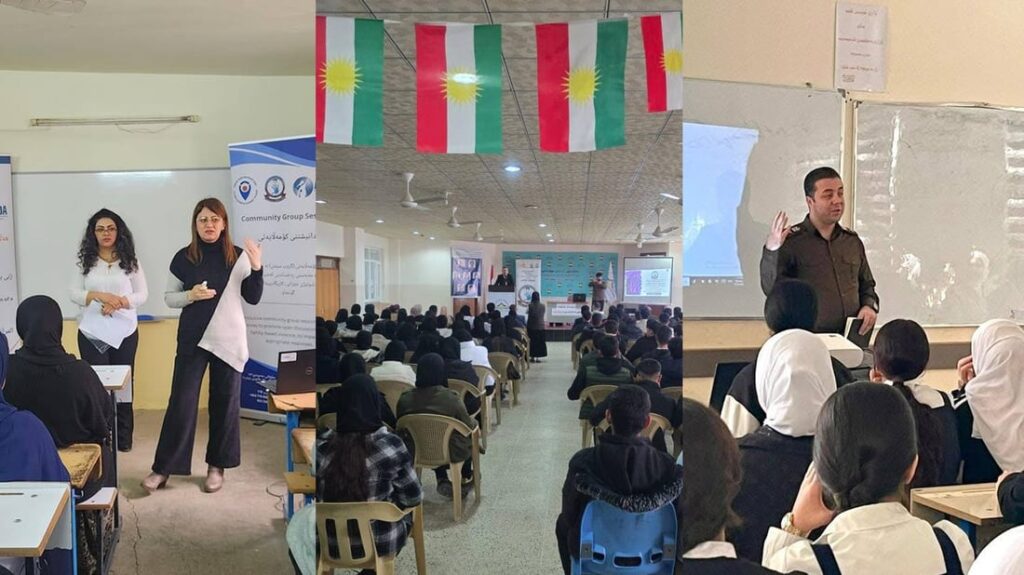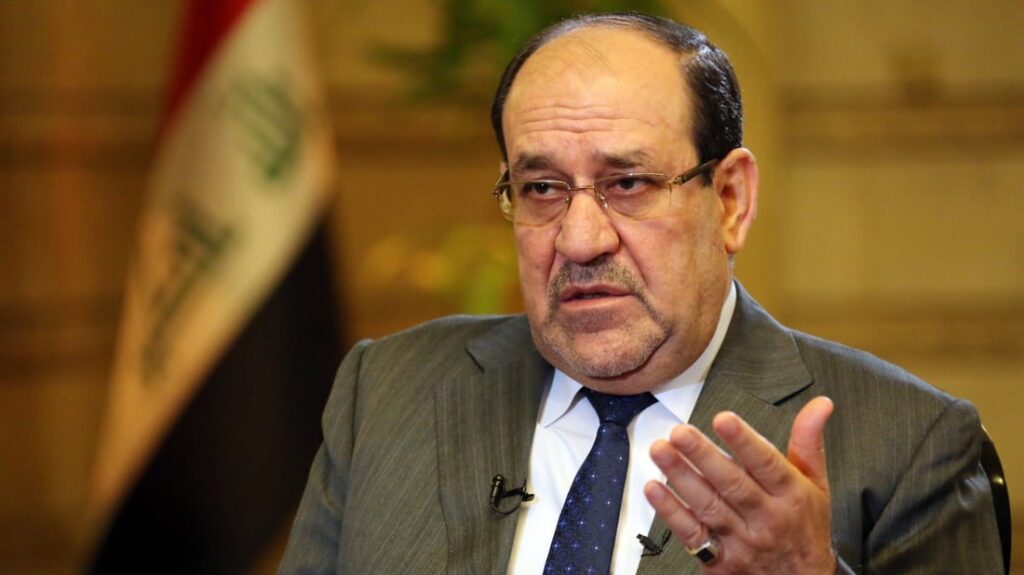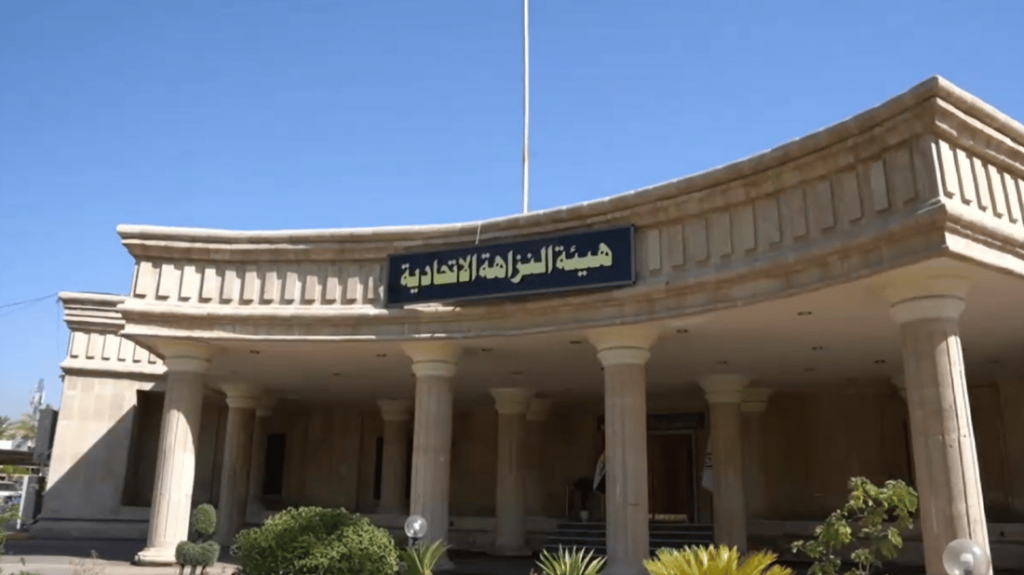Iraq: Iraq: New Protester Deaths Despite Order Not to Fire

Raises Concerns Around Command Control
(Beirut) -- Security forces across Iraq are using lethal force against protesters despite orders to stop, Human Rights Watch said today. The orders to stop using live ammunition were issued by Adil Abd Al-Mahdi, who resigned as prime minister on November 29, 2019, but remains in office in a caretaker status. The authorities should take urgent measures to stop security forces from using excessive force against protesters.
On December 1, Iraq's parliament accepted Abd Al-Mahdi's resignation, due to the ongoing demonstrations. The contrast between his statements and the continued rising death toll, particularly in southern cities, raises concerns that the government is incapable of reining in abusive forces, including groups formally under the prime minister's control.
"The government needs to put a stop to the unlawful killing and to explain why it is unable to control its own forces," said Sarah Leah Whitson, Middle East director at Human Rights Watch. "The contrast between the government's statements and what security forces are doing on the ground suggests that Iraq's commander in chief is not in charge of his own forces."
A spokesperson for the United Nations High Commissioner for Human Rights said on November 29 that by its count, at least 354 people had been killed and 8,104 injured since protests began on October 1, but that the actual total was most likely higher. In a November 28 statement, UN Secretary-General António Guterres condemned security forces' use of live ammunition against demonstrators.
The most recent killings include at least 16 protesters in Najaf on November 28, and three more the next day. Security forces opened fire on mostly unarmed protesters at a Shia religious monument, Grand Ayatollah Muhammad Baqir Al-Hakeem shrine, and again after they burned down the Iranian Consulate in Najaf. An Iraqi journalist who was at the shrine told Human Rights Watch on November 29 that as about 300 protesters marched on Al-Hakeem shrine that day, forces protecting the shrine, most in civilian dress and some stationed on the roof, opened fire: "I have never seen anything like it, with bullets landing in all directions."
A medic who was there corroborated the journalist's version and said that he ended up treating at least 25 protesters wounded by bullets to the legs, neck, and chest. He said his hospital received 16 dead that night, and three more the next day.
After those killings, Najaf Governor Loai al-Yasseri urged the federal government to end the "bloodshed" in Najaf and punish forces responsible. He identified them as Saray Ashura, a unit within the Popular Mobilization Forces, which are formally under the prime minister's control.
Also on November 28, the Interior Ministry's Emergency Response Division opened fire on mostly unarmed protesters in the early morning hours at a Nasriya sit-in, killing at least 25 and wounding 160, according to a report from the Dhi Qar governor's office, the Iraqi security forces' Joint Operational Command, and Amnesty International. A protester who was there said that he and other demonstrators remained peaceful, though some threw rocks at security forces. He said he saw security forces from Special Weapons and Tactics (SWAT), as well as others wearing black uniforms without logos, shoot and kill four protesters next to him: "When the police opened fire on us, I felt as if it was raining bullets."
In a letter to Human Rights Watch on November 20 about its reports on the death toll, Iraq's Beirut embassy cited the High Investigative Committee that Abd Al-Mahdi created to investigate abuses against protesters from October 1 to 8. The panel had recommended dismissing senior security officials and investigating senior officials for the deaths of 149 protesters and 5,494 injuries during that period. The letter did not address the extent to which the government has enforced the recommendations.
However in one example of such action in response to more recent killings, on November 28, Abd Al-Mahdi stripped Lt. Gen. Jamil al-Shammari from his role as head of the crisis cell in Dhi Qar for the Iraqi security forces because of the high death toll in Nasriya on that day. He had only appointed al-Shammari 16 hours earlier. Local media reported on December 1 that a court in Dhi Qar governorate had issued an arrest warrant and travel ban for al-Shammari.
As far as Human Rights Watch is aware, so far there have been two prosecutions of security officers. Local media reported on December 1 that a police officer was sentenced to death for killing protesters in Wasit governorate, southeast of Baghdad, and that another Iraqi officer was sentenced to seven years in prison. Human Rights Watch opposes the death penalty in all countries and under all circumstances. An Iraqi security official said on December 3 that authorities would be prosecuting another 43 police officers.
The letter from the Beirut embassy also said that Abd al-Mahdi had issued strict instructions prohibiting the use of live ammunition against protesters under all circumstances, had ordered all security forces near the protests disarmed, and had instructed them to be "patient" in dealing with protesters, and ensure they are protected when demonstrating in designated areas. The letter announced the formation of a new unit "whose mission is to deal directly with protesters and protect major social events." On November 28 the government confirmed the creation of a joint military and civilian "crisis cell."
The statements in the letter sharply contradict the facts on the ground in cities like Najaf and Nasriya, as well as others including Basra, Muthanna, and some protests in Baghdad, where various military and law enforcement forces have fired on and killed protesters. The federal government should clarify to the Iraqi population whether security forces have ignored the prime minister's orders, whether he has issued different orders, or whether other officials issued conflicting orders, Human Rights Watch said.
If live fire at protesters contradicts government policy, the government should condemn the unlawful killings of protesters, including the most recent killings in Najaf and Nasriya, and refer all security forces involved to the judiciary. If commanders gave orders for forces to open fire, the government should refer them for investigation and prosecution.
The authorities should investigate every death by the security forces, with the help of international experts if necessary, Human Rights Watch said. Such investigations should be speedy, fair, and independent of those being investigated with the participation of the families of those killed. They should lead to prosecutions of anyone found to have broken the law, including commanders.
"The government has chosen to hide behind claims that it has ordered the killings to stop, but that simply is not good enough," Whitson said. "As long as this government is in power, it is responsible when its own forces kill protesters."



